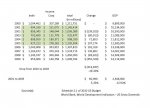But despite the GOP field’s comments, small and community banks aren’t uniformly, unequivocally opposed to Obama’s Wall Street reform. In fact, even the country’s biggest lobbying group for community banks praises Dodd-Frank for helping to level the playing field by reining in big banks, while also criticizing specific provisions of the legislation.
Shortly after Dodd-Frank passed Congress last year, the Independent Community Bankers of America applauded the law for helping to “level the regulatory and competitive playing field for community banks.” Specifically, the group praises new rules that force bigger banks to pay more in deposit insurance, which the ICBA estimates will “save community banks $4.5 billion over the next three years. The group also praises higher capital and liquidity requirements for the biggest banks, the Volcker rule, and the Consumer Financial Protection Bureau, which the group says “will reduce the unfair competitive advantage” from non-bank competitors.
Though the ICBA neither supported nor opposed the legislation while it was being deliberated, the group boasts of its efforts to help secure such provisions in Dodd-Frank. Legislators intended Wall Street reform to better regulate the biggest, riskiest banks behind the 2008 financial collapse, the biggest changes under Dodd-Frank often don’t apply to smaller institutions. The ICBA doesn’t like how the law empowers the Federal Reserve to set rates for debit-card fees for banks with more than $10 billion in assets. But 98 percent of the nation’s 7,000 community banks have assets of less than $10 billion, as the New York Times points out.

